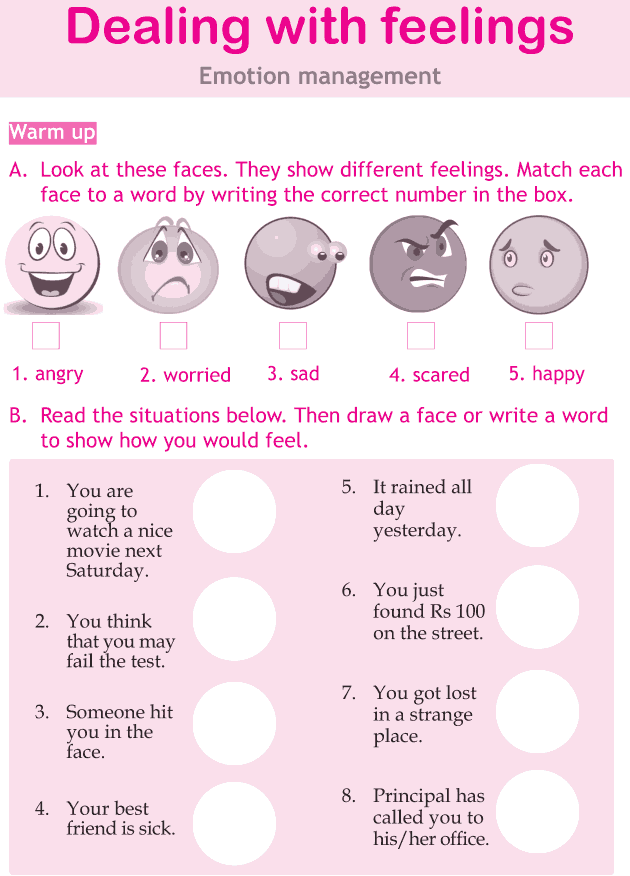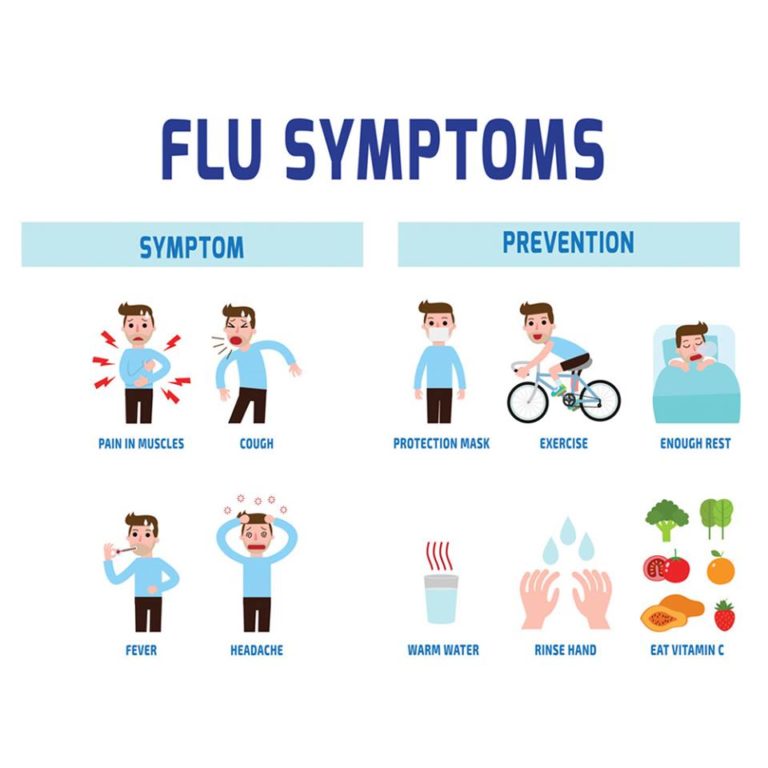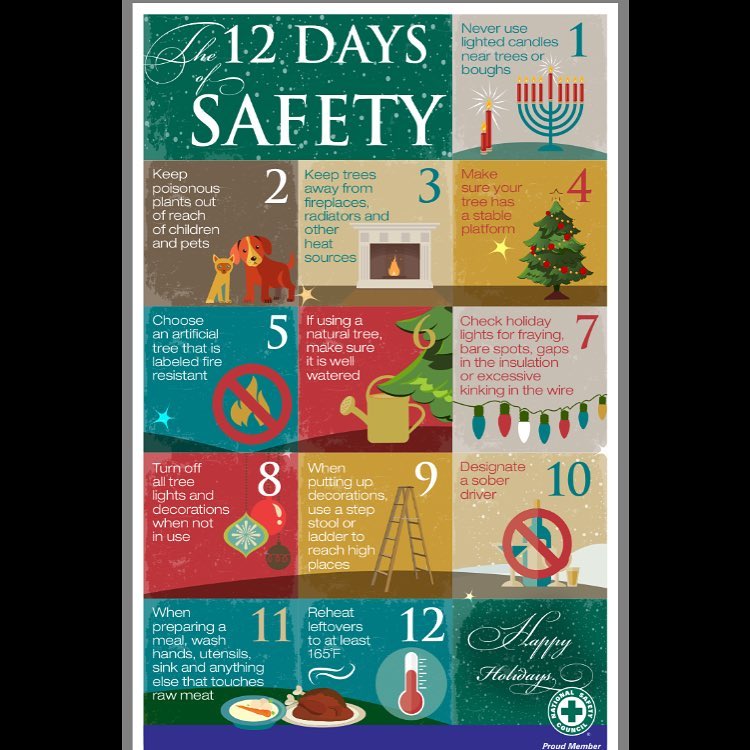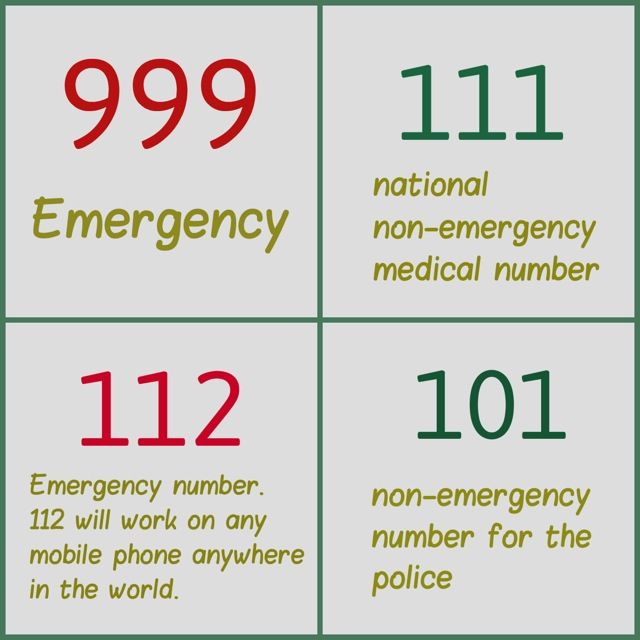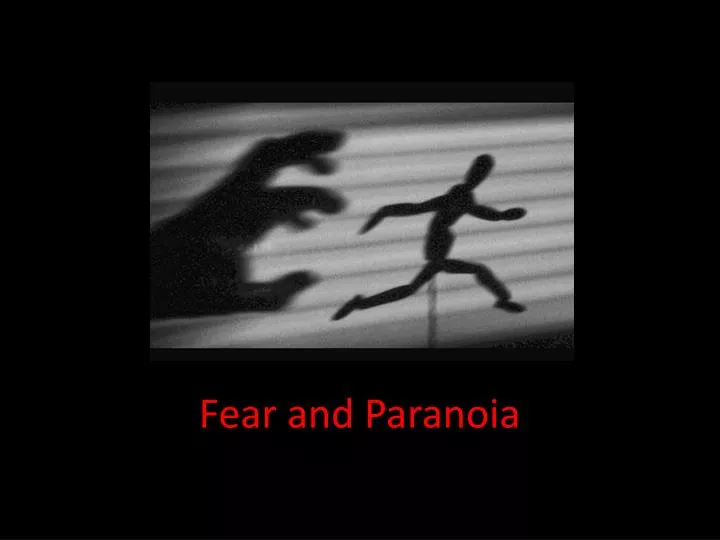Am i overreacting
5 Ways To Know If You’re Overreacting
3362 Big Pine Trail, Suite A, Champaign, Illinois 61822
- You are here:
- Home
- Blog Articles
- 5 Ways To Know If You’re Overreacting
We all have long, tiring days where we feel more irritable and react too quickly. And while overreacting to minor inconveniences can appear as a personality trait to some, it's an entirely natural occurrence that we all experience.
Although it's completely okay to feel your emotions and want to explode from time to time, it doesn't always feel great, nor does it help the situation. If you've been told that you're "too sensitive" or "overthink things," you know how intense and overwhelming it can be. But how do you know if your emotional response is appropriate or if you're overreacting?
Check out these 5 signs to get a better understanding:
- You’re stressed or anxious. The psychology of overreacting explains that people overreact to protect themselves against threats.
When we perceive a "threat" to our wellbeing, the body activates the stress response. Stress hormones such as cortisol and adrenaline are released to prepare you to either fight the potential threat or run away from it. Your heart starts racing, your body temperature increases, and you may even experience physical symptoms like stomach aches. While this response helps avoid a car accident, it can also cause you to overreact to an insult.
- You didn’t sleep well. Sleep helps us restore our emotional brain circuits to prepare us for the next day. And without quality sleep, research shows that the vibrant centers of the brain are 60% more reactive. The brain finds it more challenging to put emotional experiences or triggers into context and produce appropriate, rational responses.
- You’re hungry. Although it doesn't excuse unhealthy behaviors, hunger does play a role in the way we feel. When you haven't eaten for a while, your blood sugar decreases, triggering the same stress hormones released when you're anxious, stressed, or sleep-deprived, which can cause aggression or other impulsive behaviors.

- You were triggered. Everyone has their triggers, meaning we can all be overly sensitive to specific criticisms, fears, etc., based on our past experiences. What can seem like a minor insult to some can be a trigger that releases years' worth of pain for others. When this happens, we tend to have a more significant reaction than the moment deserves. Some people take these overwhelming emotions out on those around them, while others turn inwards.
- You’re a highly sensitive person. Being an HSP has its pros and cons. You may be easily offended by those who don't mean any harm or misunderstand their intentions. Highly sensitive people become overwhelmed by tension, aggression, and conflict more than others. On the other hand, your sensitivity can be viewed as a natural strength. You're more likely to empathize with others, be deeply moved by beauty, and have a rich, complex inner life.
Overreactions can also appear as:
- Dissociation-or severe anxiety that separates you from the present moment
- Perfectionism
- Trouble accepting the current situation or circumstances
- Difficulty recognizing other perspectives
These signs of overreacting don't mean your feelings aren't valid. However, you may benefit from finding ways to manage and express your feelings productively. Not only will it help you feel in control of your emotions, but it'll benefit your mental health in the long run.
However, you may benefit from finding ways to manage and express your feelings productively. Not only will it help you feel in control of your emotions, but it'll benefit your mental health in the long run.
If you experience any of these signs frequently or find that they disrupt your day-to-day functioning, you may benefit from working with a mental health professional. CBT or Cognitive Behavioral Therapy is a type of therapy that helps you recognize and understand the connection between your thoughts, emotions, and behaviors.
- Prev
- Next
Are You Overreacting? How to Tell
By: lookcatalog
It’s normal and healthy to sometimes be very emotional. Big life challenges can evoke big reactions. And we all have tired days when we can react too quickly.
But are you constantly accused of overreacting?
An overreactive personality type tends to come with marked and consistent symptoms and behaviours.
Choose the answers below that are most like you to determine if you are, or are not, the sort to overreact.
1. How do you decide what to say?
A – Often I only know what I am going to say when I hear myself saying it.
B – I tend to pause to hear my thoughts, and only say what I am pretty sure about. If I am not sure what I feel I usually ask for time to think.
2. If you listen to your thoughts, what do they sound like?
A – There are a lot of thoughts about other people and how they disappointed me, as well as some self-criticism. I often think in extremes – things are really great or really awful. I dream of how I wish things were, or remember a past that was better than my life now.
B – I do think about how things went and why, and consider the perspectives of the others involved. I’m often just thinking about what I have to deal with today, or my current situation. Or I’m making plans.
3. How quickly do you make decisions?
By: Rob Larsen
A – I make decisions on the spot based on how I feel, a past experience I have had, something the person has done in the past, or on an instinct I have.
B – I consider the facts from more than one angle, based on the current situation, and I make sure what I think is based on supported facts.
4. Is regret a feeling you often experience?
A – I feel regrets about things often, or even daily.
B – I don’t often regret things, or maybe do now and then.
5. What do you feel physically if someone is upset with you, or you think they don’t like you?
A – I feel a hot, burning feeling grow inside me. Or I feel physically weak, even shaky, or like my heart is caving in. Sometimes I feel like I have left my body even and am floating above looking down.
B – I can feel my heart beat a little, or like I have a dry mouth, but it’s not overwhelming.
6. How do you act if someone gets upset with you?
A – I tend to cry easily. Sometimes I even run out of the room as it all feels overwhelming. Or I get suddenly angry – but what do people expect if they are treating me badly?
B – I can listen to what someone is saying behind their firm tone, and sometimes even manage to ask questions and solve the conflict without needing to get upset.
7. How often are people upset with you?
By: Martin Pettitt
A – I often have one or two conflicts on the go, or several people I am actively avoiding.
B – I sometimes have disagreements with others, butI am rarely in conflict for long with anyone. Some people don’t like me, because we have a different viewpoint, and that’s fine.
8. How often do you go over and over what you said and did in a given situation?
A -I can’t help but do this for days or weeks after a conflict. If I don’t tell all my friends, I play it out secretly in my head.
B – I might talk things through a few times with friends if there was an upsetting situation, but then I resolve it and move on.
What do my choices mean?As you might have guessed, ‘A’ choices are signs of an overreactive personality.
Many people fall somewhere in the middle, meaning you might be sensitive, but not too overreactive. But if you tend toward ‘A’ behaviour, then yes, you have an overreactive personality.
Overreactive tendencies tend to come hand-in-hand with other behaviours and symptoms, including:
- being impulsive
- dissociation (struggling to stay present in the face of conflict)
- high sensitivity to criticism
- perfectionism
- struggling to accept the here and now
- anger management
- quick to make assumptions
- difficulty seeing other perspectives
- black and white thinking and other cognitive distortions.
An overreactive personality can also be a sign of adult ADHD as well as several personality disorders, especially borderline personality disorder, which leaves you with a thin emotional skin, and histrionic personality disorder.
Why would I be an overreactive type?
Overreacting as an adult can come from a childhood where you were not allowed to relax and be yourself. This could mean that you had a critical parent, a strict parent, or a parent who you had to take care of. A mentally unbalanced or addicted parent means a child is constantly having to walk on eggshells and be ‘good’.
A mentally unbalanced or addicted parent means a child is constantly having to walk on eggshells and be ‘good’.
All these parenting styles can lead to a child to grown into an adult who struggles with self-esteem, and is so on edge about being criticised or being hurt that they overreact to any perceived slight.
Childhood trauma can also cause an overreactive personality. Something very painful in your past, like abuse or abandonment, means you develop defence mechanisms (and overreacting is simply pushing others away) to protect you from further hurt.
It also means that you have a hidden reservoir of sadness that you can project onto present day experiences. That little insult someone else puts your way triggers years worth of pain, meaning your reaction does not match what is actually happening.
Can therapy help me stop overreacting?
Yes, it can be a big help. Cognitive behavioural therapy (CBT) is a great place to start. It is a short-term therapy that helps you recognise and control the connection between your thoughts, feelings, and behaviours. To deal with childhood trauma such as abuse, a longer term therapy like psychodynamic therapy can be a great support.
It is a short-term therapy that helps you recognise and control the connection between your thoughts, feelings, and behaviours. To deal with childhood trauma such as abuse, a longer term therapy like psychodynamic therapy can be a great support.
I don’t really match any of this, but my partner keeps calling me overreactive?
It’s worth looking into narcissism. If your partner suffers from narcissistic traits or narcissistic personality disorder, they are likely to blame you for being ‘overreactive’ every time you respond with reasonable upset to their bad behaviour.
How else can you start curbing your overreacting? Sign up to our blog to receive an alert when we release our connected article, “How to Stop Overreacting to Everything”.Still have a question about being overreactive? Leave it in the comment box below.
You perceive everything too sharply, or a book about supersensitive people
Self-development
You take everything too sharply, or a book about supersensitive people
April 19, 2018 18 903 views
Natalia Shirokova
"You take everything too sharply!" "Don't get upset over trifles. " "Look at life easier." If people around you often give you such advice, you may be an oversensitive person. And it's wonderful. nine0003
" "Look at life easier." If people around you often give you such advice, you may be an oversensitive person. And it's wonderful. nine0003
Hypersensitive people feel finely. They have open hearts. They easily respond to beauty. They understand when someone feels bad and rush to fix it. Ted Zeff is that kind of person. As a child, he thought that something was wrong with him. And then he grew up, became a psychologist and realized that he was not alone. There are millions of hypersensitive people around. And it's not easy for them in this crazy world.
The book "Supersensitive people" - for them and those who live nearby. And also for everyone who wants to experience peace of mind more often. She is practical, kind and always ready to help. nine0003
We are (Ultra) sensitive
There are many hypersensitive people (HSP) in the world - 15-20%. Every fifth. Such people tend to overreact to pain, caffeine exposure, and violent films. Bright lights, strong smells, deadlines and changes make them uncomfortable.
This book contains a self-diagnosis test. You will understand if you are HSP. And life hacks that will help turn high sensitivity into peace and joy. They also apply to the rest of the 80% of non-HSPs - after all, we all feel like squeezed lemons and want to become a little happier. nine0003
When we feel calm, the little things that bother us—and not just the little things—seem to be insignificant. So let's learn it right now.
Slightly medley
I bet you can relax right now? Whatever you do, start doing it slowly. If you are talking, slow down the pace of your speech. If you are writing, start to carefully print each letter. If you are reading, linger on the words and pull them to yourself.
Whenever stress sets in, slow down and feel your body relax. nine0003
1% apology
Got into a conflict? In any quarrel, there are two sides. Perhaps you are only 1% to blame. Take responsibility for that part of the blame and…just apologize. This is how you help your partner do the same. After that, it will be easier to solve the problem.
This is how you help your partner do the same. After that, it will be easier to solve the problem.
I am you
Harmony in relationships = harmony with yourself. There is a simple but effective method. Ask yourself two questions when judging others: "Is this true?" and “How will I treat a person if I refuse to have a subjective opinion about him?” nine0003
The answers will save you a lot of trouble. But that is not all. The last step is to reverse your statement. Replace the person towards whom you feel resentment or anger with yourself. For example, replace the thought "My other half should understand me better" with the opposite: "I should understand my other half better." Working.
What else
We cannot completely get rid of irritants, but we can reduce their impact. By making microscopic changes in every area - relationships, work, sleep, nutrition, emotions - we return balance to life. nine0003
Tips and strategies from the book will help you avoid overload and find joy.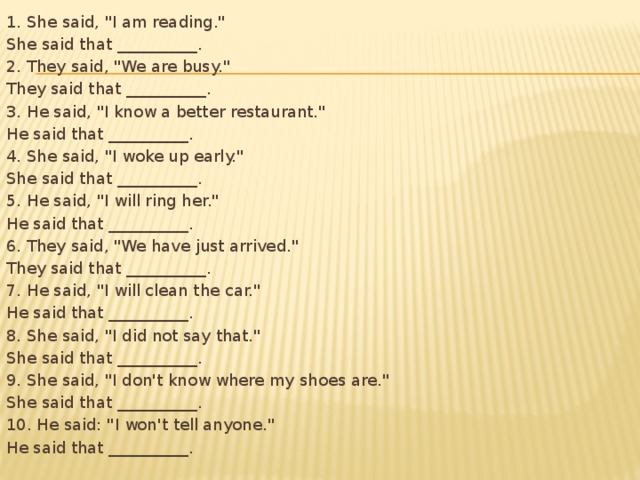
Many useful things await you:
- Self-diagnosis test
- Anti-stress diet
- How to stay calm on business trips and travels
- How does the inclination to deep feelings help to experience inner peace (paradox, yes-yes)
- Sleep Improvement Program
- Dealing with noisy neighbors
- Progressive Relaxation
- How to create a relaxed work environment
- Conversation with a psychologist
…240 pages of pure peace are waiting for you, which will tell you how (and why) to develop a subtle mental organization and help you realize the benefits of a mid-life.
The world in which we live does not always take good care of us. Fortunately, we can take care of ourselves - and become calmer, more joyful, happier. It's not difficult at all.
Based on the book "Supersensitive People"
Post cover — unsplash.com
P. S. Do you want to become the best version of yourself, live a life full of meaning and get good discounts on the best MYTH books? Subscribe to our newsletter. Every week we select the most useful excerpts from books, tips and life hacks - and send them to you.
S. Do you want to become the best version of yourself, live a life full of meaning and get good discounts on the best MYTH books? Subscribe to our newsletter. Every week we select the most useful excerpts from books, tips and life hacks - and send them to you.
What to do if you are too sensitive. And this is noticeable
Heightened emotionality is no longer a sign of weakness - it is a feature of the psyche. The existence of highly sensitive people has been scientifically proven. In a world where more and more people cannot cope with stress, American psychologists are closely studying those who are especially prone to worry about any reason. "Lifestyle" offers to join them. nine0003
If you can't stand bright lights and turmoil around you, you can't watch horror movies, and after watching the news about an earthquake or a military conflict, you start crying out of pity for the victims, you are a highly sensitive person. According to the author of the term Elaine N. Aron, there are about 20% of people like you in the world. This means that it's time to stop hiding your feelings and no longer be ashamed of crying in the movies.
Aron, there are about 20% of people like you in the world. This means that it's time to stop hiding your feelings and no longer be ashamed of crying in the movies.
In today's Western world, it's a shame to be a weakling — and that's why we have to hide our feelings, constantly keep in good shape, pretend that we can live without lunch and sleep and work 12 hours a day, otherwise our colleagues will look askance at us , and the authorities - to make jokes about us. nine0003
In our country, it is not customary to be capricious, and that is why we are forced to agree to the conditions that we have, to work in a basement or open space, under the wind of an air conditioner, under the harsh light of fluorescent lamps and under the cries of colleagues from neighboring departments.
close
100%
Are we suffering from all this? Yes, we suffer. In general, we suffer from a lot of things: we can’t stand the feeling of hunger, we can’t watch films about the war, we don’t wear woolen clothes because they prick, we tear off the tags from T-shirts because they get in the way. We cannot work when it is cold, hungry or noisy, we react sharply to criticism and take any comments personally, we catch changes in the mood of others. It remains to say who we are. nine0003
We cannot work when it is cold, hungry or noisy, we react sharply to criticism and take any comments personally, we catch changes in the mood of others. It remains to say who we are. nine0003
We are highly sensitive people. Do not rush to laugh and call us sissies - and not only because it is very offensive to us.
You may also be one fifth of the world's population, which is characterized by a particularly sensitive processing of sensory information. Then you are one of us.
Perhaps you, too, were forbidden to watch the news program as a child, because they show war and starving children in Africa? Maybe you were dying of shame when a geographer slapped you a deuce once in your life? Maybe they hated running and, in general, any form of competition, when everyone is looking at you, and you run no more than a three? Maybe at school it was a real torment for you to raise your hand in class, even if you knew exactly the right answer? Maybe. Or maybe you have other examples from your childhood that will help you to say that you were a highly sensitive child and probably grew up to be a highly sensitive adult as well. nine0003
nine0003
The term "highly sensitive person" was first used in its current sense by Dr. Elaine Aron, a scientist and author of The Highly Sensitive Person, published in the United States in 1997. The hypothesis that high sensitivity to external stimuli is a feature inherent in about 20% of the inhabitants of the Earth was put forward by a psychologist twenty years ago.
However, the real interest in this idea has awakened among the public only now, when it became clear that more and more people can not cope with stress. nine0003
And I woke up just in time: for twenty years, Dr. Aron and her colleagues have done a lot of research that helped to understand what processes occur in the brain of a highly sensitive person, and to conclude that this feature is innate: certain parts of the brain of such a person react to external stimuli sharper than other, less sensitive people.
And not only negative ones, but also positive ones too. Yes, highly sensitive people feel acute discomfort in awkward situations. But brighter experience the pleasure of contemplating objects of art and views of nature, listening to music, communicating with pleasant people. nine0003
But brighter experience the pleasure of contemplating objects of art and views of nature, listening to music, communicating with pleasant people. nine0003
How to know that you are a highly sensitive person
close
100%
1. You have deep feelings
One of the main characteristics of highly sensitive people is the ability to deeply feel what is happening around. They have developed intuition, which allows them to be more perceptive than their less sensitive comrades.
2. You react more emotionally than others
Highly sensitive people experience more intense emotions and are often infected by the emotions of others. These are not necessarily close people, they can easily pick up a bad mood from a friend or take care of a colleague's problems. This makes them hate delivering bad news or making unpopular decisions – they worry about how others will react to it. nine0003
3. You are often told: “Don't take it personally. ”
”
Sensitive people are treated differently in different cultures: if in the West emotionality is a manifestation of weakness, then in the East everything is not so simple.
Dr. Ted Zeff, author of The Highly Sensitive Person's Survival Guide, states from his research that in India and Thailand sensitive men are very rarely teased, while in North In America, men with a fine mental organization are often the objects of ridicule. nine0003
4. You prefer to exercise alone
Highly sensitive people hate team sports, according to Dr. Zeff. And our experience confirms this: such people like cycling, swimming or walking, but playing football or basketball causes them to panic.
However, there are exceptions: if such a person is lucky with smart and understanding parents, he may not be afraid to show himself in a team.
5. You find it difficult to make elementary decisions
Highly sensitive people are attentive to the details of the situation and the subtleties of the circumstances. From this, they try to take everything into account and fall into a stupor, because there is too much of this.
From this, they try to take everything into account and fall into a stupor, because there is too much of this.
Even the task of choosing an ice cream can confuse them. However, there is good news: having once understood how to behave in a certain situation, in similar conditions in the future, such a person, without getting lost, will immediately do the right thing. nine0003
6. You get upset when you make a mistake
Mistakes upset everyone, but highly sensitive people - especially: because of annoying little things and oversights that others have forgotten to even think about, they can suffer for weeks, imagining that they still remember the mistake.
7. You are an introvert
But there are exceptions: according to Dr. Aron, 30% of highly sensitive individuals are extroverts. This happens when a person grows up in a closed environment where everything is in plain sight, in a village, a small town, a religious community or a family of a public person. nine0003
nine0003
8. You know how to work in a team
Paradoxically, the depth of experience makes highly sensitive people excellent workers. Only they should not take positions in which they must make final decisions: for example, if it is a doctor, he should have the opportunity to consult with colleagues before prescribing treatment.
9. You are prone to anxiety and depression
This only happens if you have experienced a lot of adversity in the past - but who among us is lucky to do without them at all? Shy people are often teased in childhood: if a highly sensitive person was not given proper support in childhood, he grows up with the feeling that the world is hostile, and only doctors and antidepressants can help here. nine0003
It is worth taking a closer look at your child: high sensitivity is often inherited.
10. You can't stand harsh sounds
Someone can't stand it when Styrofoam squeaks on glass. Someone - the sound of a perforator or drill. It annoys someone when others eat loudly: champing and smacking is really impossible to endure, why do people even allow themselves to eat with their mouths open ?!
It annoys someone when others eat loudly: champing and smacking is really impossible to endure, why do people even allow themselves to eat with their mouths open ?!
11. You can't see the violence on the screen
A highly sensitive person cannot watch horror films about dismemberment, disaster films about drowning dogs, and arthouse about rape. Lars von Trier, Gaspar Noe and Michael Haneke are cinematic enemies.
Salo by Pier Paolo Pasolini? Look in your VGIK, and it’s enough for us to read the plot.
But you can watch Game of Thrones by closing your eyes in certain places, because the costumes are beautiful.
12. You can cry from scratch
When such a person is offended to tears for some reason, he is really capable of bursting into tears. And, by the way, it costs him a lot of effort not to do this. A sad film (without violence), a touching commercial for a charity campaign, a story about a penguin who annually comes to the Brazilian (or Chilean?) who saved him - in general, anything can cause a surge of feelings.
13. You are very polite
Good manners are a hallmark of highly sensitive people: it is important for them not to hurt the feelings of others. They try not to inconvenience others: they regularly give up their seats on public transport, carefully place their carts in the supermarket, let people go ahead, and endlessly apologize and thank you. So sometimes it's even annoying. nine0003
14. You are sensitive to criticism
Highly sensitive people literally cannot stand criticism, taking it to heart. When their team is criticized, they take everything personally.
Because of this, they often use ridiculous defense mechanisms: they try to please everyone in advance, they criticize themselves, they avoid everything that can be a source of criticism.
Dr. Aron claims that self-defense such people use the following methods, which may seem strange to most: minimizing contact, blaming, trying to achieve too high a result, resentment, projecting, refusal to compete. nine0003
nine0003
15. You can’t work in an open office
Open space is a nightmare for any office employee: noise, bright light that not everyone can bear, constant flickering, talking on the phone, disputes and extraneous smells - all this makes you a highly sensitive person's head is spinning, but it does not work out in any way. He is generally incapable of working under pressure: maybe someone needs a good kick to start working, but not for him.
close
100%
The 10 Rules of a Highly Sensitive Person
1. Remember that you are not alone and that what happens to you is normal.
2. Avoid people you don't like.
3. Avoid situations that tire you.
4. Don't overload your schedule or you may fall off at the most inopportune moment.
5. Set healthy boundaries with people who use your capacity for empathy.
6. Keep a diary to help you clear your head and learn how to make decisions.
7. Enjoy good music, art, and people who support you.

